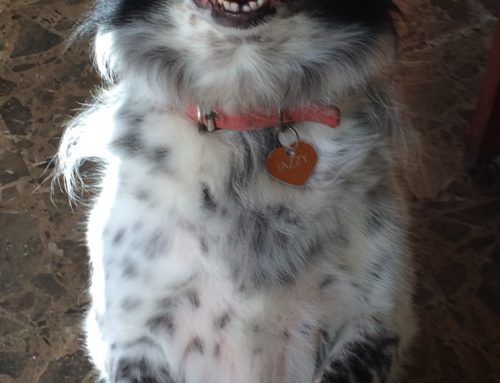In a scene from Monty Python’s “The Life of Brian”, a Roman soldier is sorting out the prisoners by asking “crucifixion?” apparently relying on the integrity of each prisoner to declare his own sentence. The ridiculous scene soon becomes hilarious when one prisoner, played by Eric Idle, answers “no crucifixion” and says he’s been set free, and just as the confused centurion is about to set him free, he quickly admits he really is to be crucified, he was just having fun with the Centurion. The clip’s below.
Do we make similar choices?
What often makes comedy funny is when it depicts some absurd thing we do in life. We recognise it when the comedian confronts us with it, and somehow the fact that it’s true, that we actually do that stupid thing—like check our fly when the pretty girls look our way, think of dropping our phone the moment we’re near the toilet, or act out how we should have told off that a..hole at work when we think nobody is looking—makes us laugh.
And it’s also true that we’re presented with crucifixion/no crucifixion choices every day, and we choose crucifixion.
Maybe not crucifixion, but we certainly choose to suffer
Crucifixion is perhaps the best metaphor for suffering, and if we take the centurion as a metaphor for life, I think we often say yes to crucifixion-type questions.
Life is there, asking us what we want: success or failure, happiness or unhappiness, money or no money and we’re making similar unbelievable choices.
Why would we choose crucifixion?
Because we aren’t born into a vacuum. Rather, we’re born into a sea of narratives, and beliefs that pass from generation to generation. A child born into a family that retells stories of financial hardship, learns to accept beliefs about money like money doesn’t grow on trees, and rich people are bad people.
When life asks the now grown-up child if she wants riches or an average middle-income life, she can’t help but choose the latter. After all, she’s been trained to respond that way all of her life. Deep down she believes with all her heart that riches are not for her.
How we make the choice
Of course, life doesn’t literally ask us the question “Crucifixion?” or “Suffering?” as in “Would you like to always be in need of money?”, but life does present us with situations where we must choose one direction, or one ambition over another, one partner over another, one school over another and our choices often lead us to suffer.
We answer yes to suffering, and always find ourselves with broken relationships, lacking money and in jobs we hate. But we can just as easily say no.
Pain is mandatory, suffering optional
I don’t know who originated that idea, but it stuck in my head the first time I heard it. The idea comes from the observation that you can’t avoid the initial pain from a breakup, job loss, or betrayal, but you absolutely don’t have to keep reliving the incidents and keep giving them negative meanings. That’s choosing to suffer.
Life asks us the suffer/no suffer question by presenting us with choices like:
- Stay in an abusive relationship or leave.
- Light that cigarette or go exercise.
- Further your education or stay in a job you hate.
- Apologise and reset your relationship, or kick the can down the road by pretending you did nothing wrong.
- Forgive and move on, or keep reliving the hurt.
And we continually make the choice that leads to suffering.
Practice noticing the choices you make
If your life is not going great in some area, you can take the first transformational step by noticing the choices you are making every day e.g. eating a bag of Doritos, being resentful, ignoring your partner etc., etc.
It may not seem that way, but just like the stupid prisoner in the clip below, you may be choosing crucifixion.






Any thoughts? Contributions/acknowledgments welcome.